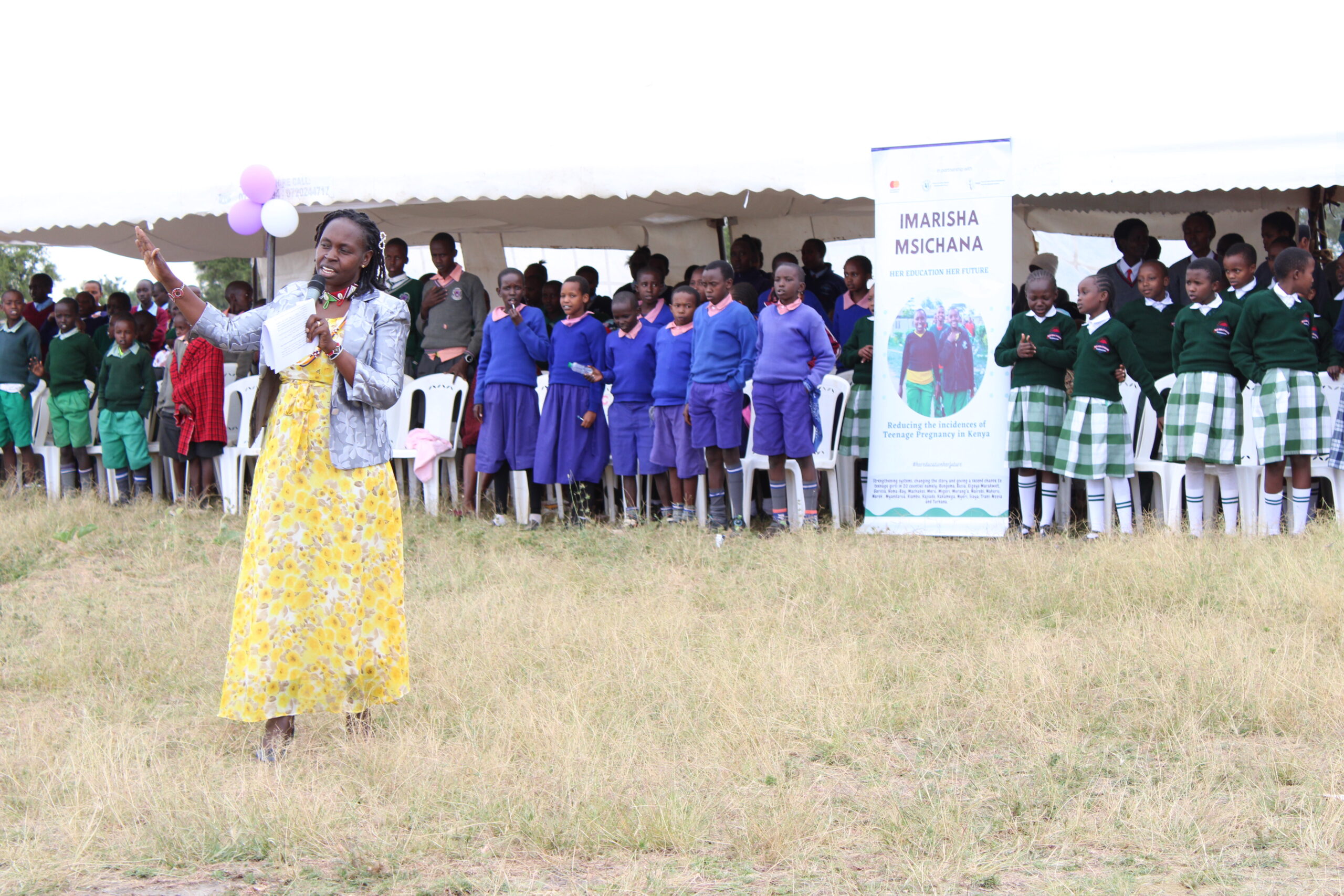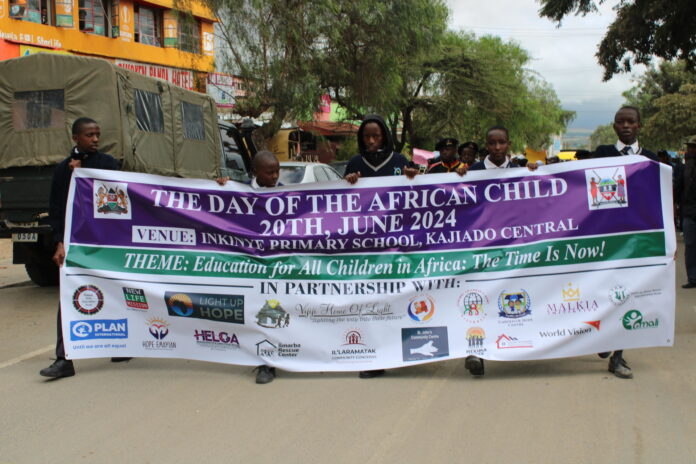By Seline Nyangere
Kajiado County, Kenya: In marking International Day of an African Child at Inkinyie primary school, Kajiado County governor’s spouse Dr. Edna Lenku mentioned that, over the years, education has not been a priority but with the introduction of certain programs brought about by devolution, people in the community have started to see the importance of education.
Education stakeholders in Kajiado County continue to find ways in which all children are enrolled in school and distance themselves from any form of harmful cultural practices such as female genital mutilation (FGM), early marriages, school dropout, and teen pregnancies.
“In Kajiado County, education has not been at the forefront but since devolution, most children enrolled in school, devolution brought different programs to ensure children are enrolled in school. Programs such as school feeding programs, availability of classes, and teachers. The county also took an initiative and identified children whose families could not afford fees due to effects caused by prolonged drought and teachers to allow them to remain in school”, revealed Mrs. Lenku.
Kajiado Assistant Director Children Service Cosmas Karera issued a stern warning to parents or anyone subjecting children to child labor, harmful cultural practices and not enrolling children to school terming education as the biggest investment.

“We are here to ensure that all children who have not joined school are enrolled to school, most time children in our community are not in school because of early pregnancies, others have been subjected to child labor in the farms, others have been married off early, and some subjected to FGM while those with disabilities have been hidden at home. We are here as stakeholders to ensure all these are enrolled in school, let us all educate our children as this is the biggest inheritance we will leave to them. Let the government put more investment in education” pointed Karera.
Forum for African Educationalist Kenya (FAWEK) Kajiado county coordinator, Nelly Naserian said that there is still more effort that needs to be put to ensure every child is educated and as an organization, through the Imarisha msichana program they work to ensure children’s rights are protected.
“There is still work to be done to ensure all children including those with disability and those out of school have gone to school. We will continue involving the community and educating them on the importance of education and why they should take their kids to school. Our Imarisha msichana program ensures that all teenage girls are educated and remain in school we are here to celebrate the day of an African child with the aim of ensuring that children’s rights are protected and we condemn injustices of any kind to children”, said Naserian.
Agness Leina, founder of IL’laramatark Community revealed that, with the help of UNICEF and Spread Truth Africa, their organization has been able to register the National Education Management Information System (NEMIS), educate parents, and assist in the school feeding program.
“We have a sponsorship program in which we have educated more than 200 children. Most children have not joined the school because of NEMIS, there are parents who are not knowledgeable on how to register for NEMIS, and as an organization we have taken an initiative to ensure they are educated on that so that their children can join the school, enrollment of the children has grown. We have partnered with Spread Truth Africa who have assisted us with the school feeding program in schools, UNICEF has also helped us acquire certificates for these children, especially in the grassroots”, revealed Leina.
Leina also called the county government to construct ECD classes at Inkinyie Primary School and employ ECD teachers as well.
The theme for this year’s Day of an African Child, Education for all children in Africa, The Time is Now, aims at ensuring every child is educated and remains in school.














